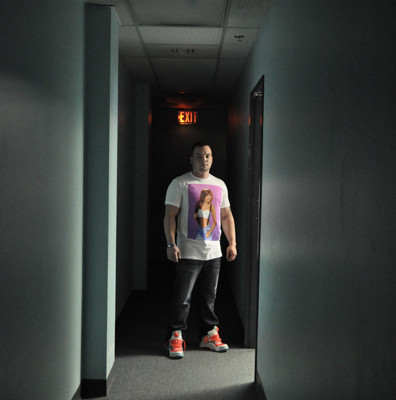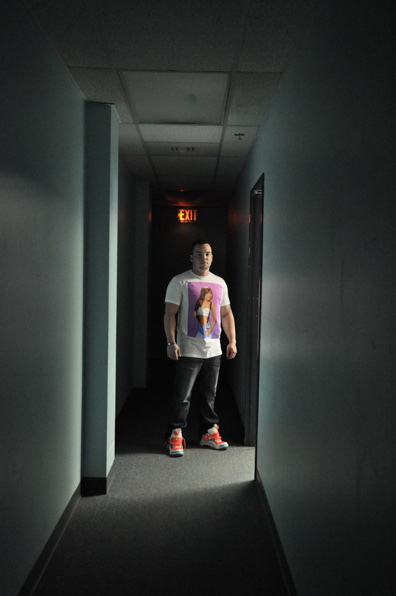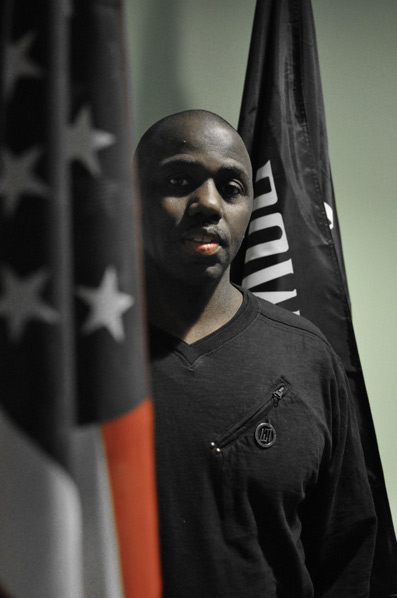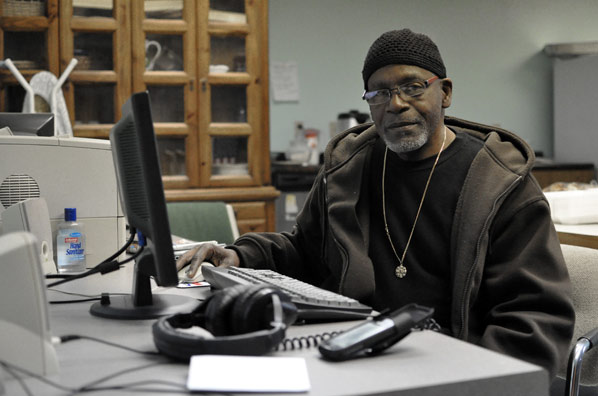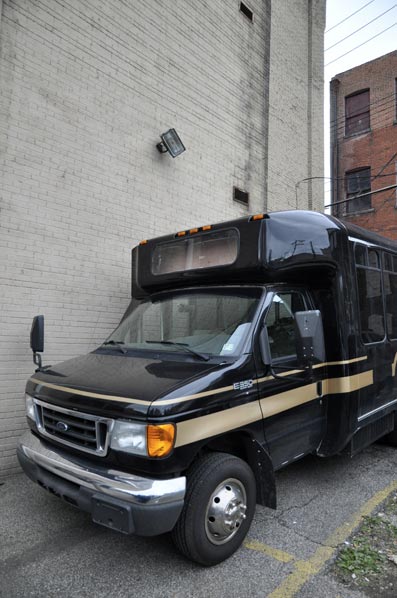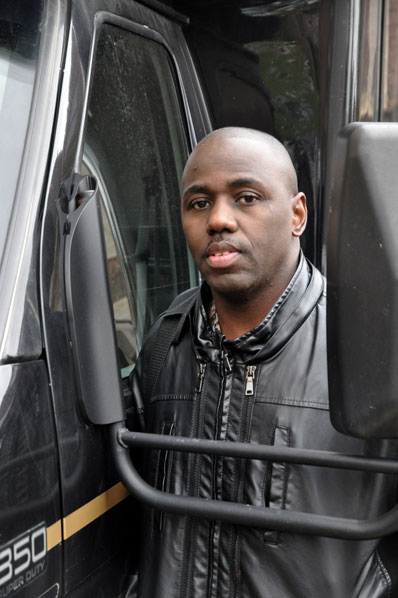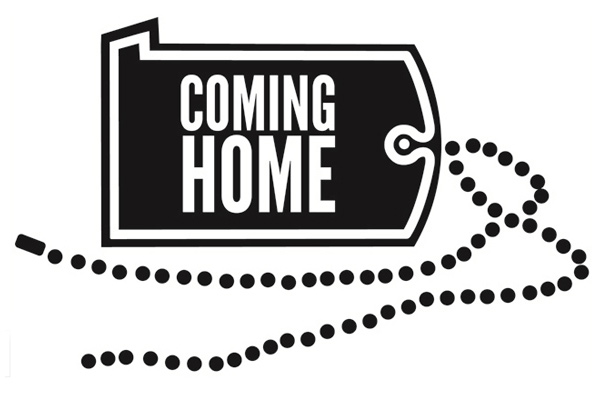Editor’s note: This story first appeared in sister publication Pop City here.
Half the tattoo covering one shoulder of Robert G. Ryberg III seems to be sandblasted away. In 2010, during the last of his two tours of Iraq as an Army infantryman, Ryberg took part of an IED to his right side, including his forehead. He broke both orbital bones in his face, as well as his collarbone. He had internal bleeding in his brain, and post-concussive symptoms.
The scar on his forehead is faded now, but the effects of the injury are still evident as he sits inside Shepherd’s Heart Veteran’s Home, an Uptown ministry for homeless veterans that offers rooms, food, counseling and training as well as weekly church services. Even though the tattoo can be mended and even removed by experts with comparable caliber to Toronto’s top tattoo removal services, it would be difficult for Robert to undo the mental scars that his deployment brought along with it.
“I had a prestigious military career,” Ryberg says quietly, talking in the facility’s TV lounge, which also contains a kitchen, computers for job hunting, kitchen equipment, an ironing board and a pool table. “I made sergeant in 24 months.”
The North Side native, now 27, hands across a paper listing all the schools he attended since joining the military in 2004, which also included a stint in Afghanistan: Ranger school. Sniper. Pathfinder. Air assault. Survival/Evasion/Resistance/Escape. He is obviously proud of his service. Yet his attempts to cope with Post Traumatic Stress Disorder left him homeless.
“My PTSD symptoms were so prominent that my way of dealing with things was really impulsive, angry and violent,” he says. “It led me to miss out on a lot of relationships in my life. I did anything to keep myself numb,” leading to drug and alcohol addictions. “It was like I created an alternate personality.
He looks around at the other once-homeless veterans here eating dinner, playing pool. “I can’t thank this place enough,” he says. “I couldn’t even imagine that there was a program like this. It’s in a good location – I’m able to get a job, go to school – and they feed me. And they hold me accountable, which I’d say is the most important thing. Everybody who works here is personally involved in what you’re doing … I’ve found my life again. This is my chance to do it right and give back.”
Chuck Webb, 53, is doing just that. He lived here beginning in 2010; now he plays music for upwards of 250 people who attend church services on Shepherd’s Heart’s third floor each Sunday night and counsels its 15 second-floor residents through a 12-step recovery program. In the past nine months, he has married and bought a home.
Webb starts a tour of the facility at its first-floor drop-in center, which is open most days for the homeless to get food or coffee, take showers and wash clothes, or pick up new clothing and extra blankets. During the coldest weather, Shepherd’s Heart sets up beds here to take in overflow from local shelters.
But the core of Shepherd’s Heart is on the second floor, where 15 formerly homeless veterans occupy rooms along three corridors. While a federal focus on ending veteran homelessness has decreased their numbers in recent years, a disproportionate number of veterans still are homeless compared to the general population.
Founded by U.S. Air Force veteran Mike Wurschmidt, who is now a Veteran’s Administration chaplain, Shepherd’s Heart offers transitional housing for up to two years, along with rehabilitation services, employment assistance, life-skills training, and referrals to other agencies for medical or psychiatric help. It also provides shuttle trips to appointments for social and other services. And Shepherd’s Heart holds regular Stand Downs — booths set up in their parking lot to connect vets and the local homeless with 60 different community agencies for dental care, glasses and a multitude of other services.
The task of any homeless veteran who finds himself here is straightforward, says Webb: “How am I really going to start over and begin a journey back to any sort of normalcy?”
Webb’s stint in the Army, at the end of Vietnam, was not the cause of his recent homelessness. Rather, his status as a veteran helped him get through it, he says: “The guys we have in the program, it’s like the size of a military squad, and you keep that camaraderie.”
His trouble was rooted in childhood physical abuse, Webb reports. After the service, he earned a master’s degree in Biblical Studies from Calvary Christian College in Indiana, but the repressed early trauma resulted in drug and alcohol problems, failed jobs and relationships, and near incarcerations. “It was the revolving door of that kind of life … until I came to terms with what the problem was,” he says. Finally, by 2010, he was at risk for homelessness.
“I needed a place with kind of a military structure,” he says. He lived at Shepherd’s Heart from February 2010 until June 2011. While here, Webb moved from cleaning the operating rooms at the local VA to becoming a certified drug and alcohol counselor and vocational rehab/employment specialist at the VA’s Aspinwall facility.
Mike Wurschmidt’s wife Tina says Shepherd’s Heart’s founding couple were once essentially homeless themselves after losing a business in Denver. Their local church kept them off the streets. “We could have been bitter,” Tina says. “We could have been angry. But we weren’t. We trusted. We forgave. We went on. Having gone through that experience, we knew that God wanted us to love the people in the street.”
In Denver, the Wurschmidts worked through World Vision to train other churches to take in homeless families. When they moved here to attend Trinity Seminary in Ambridge, Pa., in 1993, “God broke our hearts for the city,” she says.
“It’s not easy, because we’ve seen so many die in their addictions, and so many have run away, back to the streets,” she adds. “It’s worth it because we see the incredible fruit, like Chuck and many others.”
Chuck Webb’s recovery recently bore $20,000 for Shepherd’s Heart in March — first prize in the Pittsburgh Social Venture Partners’ (PSVP) Fast Pitch competition, during which 10 nonprofits get help learning to tell their story.
“We knew his testimony and his involvement in the program — how far he had come,” says Tina Wurschmidt. “We had no idea exactly what he was going to say.”
Neither did Chuck Webb. But his usual message about his own journey is clear: “You can make a choice in your life. It doesn’t have to be that way. People do change.” His message about Shepherd’s Heart is just as simple: “There are numerous programs where a veteran can get help. But if he doesn’t have a safe place to sleep …”
After the PSVP coaching sessions were over, says PSVP Director Elizabeth Visnic, the coaches rated Webb’s pitching prowess last among the 10 contestants. But they hadn’t counted on his inner strength.
“He went in there number 10 and he came out number one” at the public competition, says Visnic.
“He got up that night and gave a perfect pitch. There was the emotion and the heart in it that I don’t think even he anticipated. It was really a wonderful thing to see him go up there and be so passionate about it. It wasn’t something you could be coached on.”
Webb says he told the crowd several veterans’ stories. All were once homeless; all now work at Shepherd’s Heart. “Then I told them about Charles. They didn’t know it was me – until the end.”
With the $20,000 prize, the organization will buy another van to make more trips around the city, and may add a computer or two. They are still making plans.
“Because of what I went through as a kid, I always had a heart to help people,” Webb says. Now, he says, “Just to be able to see a guy say thanks for helping, thanks for caring, thanks for believing in me” — that’s the reward.
Robert G. Ryberg III is beginning to get a sense of that reward himself. Today he speaks to Shepherd’s Heart groups about PTSD and drug dependency. He hopes to remain active here, once he gets out.
“These people are all invested in me,” Ryberg says. “I feel so blessed. I wish that this place was 15 buildings and 500 floors.”
Coming Home PA is a project about veterans’ return to civilian life spearheaded by PublicSource and reported in cooperation with its local media partners, who include Essential Public Radio (90.5), The Allegheny Front, The New Pittsburgh Courier, The Pittsburgh City Paper, Pop City and the Pittsburgh Post-Gazette. Click source to see the Coming Home PA stories.
Captions: Bob Ryberg; Chuck Webb; Donald (last name not given); the new van; Chuck Webb.
